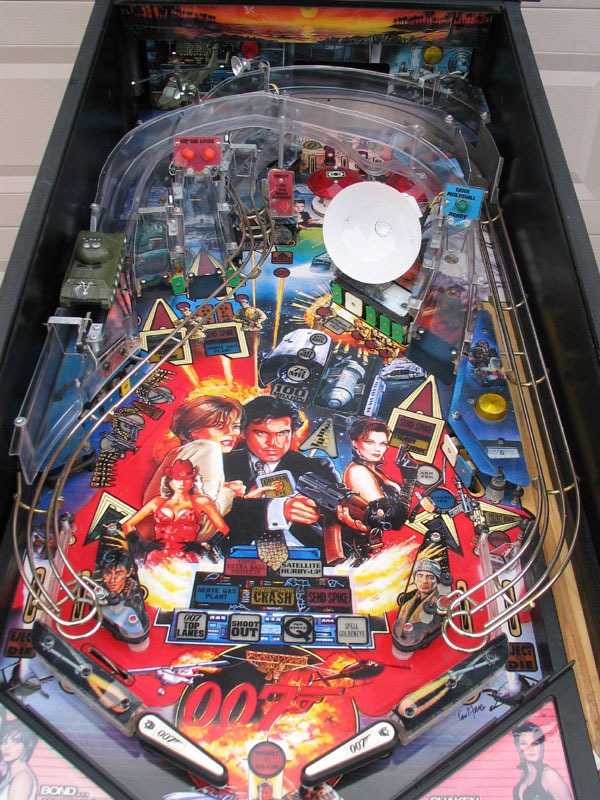
Another spin around the world again.įor Pinball wizards, consciousness extends beyond their body into the mechanical world of the machine. The player puts another karmic quarter in the machine and reincarnates. We never see a pinball die tho, it merely disappears from sight. Then eventually we all share the same fate. Launched by choice into a chaotic environment where you have limited control.

A perfect sphere, a symbol of human existence. One reading of pinball is that the pinball is you – your character inside the mechanical world. They are people who physically merged with a world inside a machine. Pinball wizards are cyborgs of the 1970’s. Set in motion by firing of the plunger, then influenced by the flipper buttons as the world unfolds. Pinball is a wind-up world that you have agency inside. The score lives here – the transcendent glowing consequences of your actions. The body of the machine, or the playfield, has its bumpers, bash toy’s and various lanes can be completely held in mind. Pinball, is a mechanical world that can be totally understood. Haraway tells us that: “The machine is us, (.) an aspect of our embodiment.” But “a hybrid system comprising both living and inanimate material” relates to Townsend’s lyrics. “Becomes part of the machine’Īll four definitions of Donna Haraway’s cyborg are useful here. But let s talk about the first line of that second verse of the song. We’ll come back to Pete Townsend in a bit. That deaf, dumb, and blind kid sure plays a mean pinball Pinball Wizard – The Who (Tommy – 1969) Plays by intuition, the digit counters fall He stands like a statue, becomes part of the machineįeelin’ all the bumpers, always playin’ clean Released at the height of the so-called Pinball Craze.

#Pinball wizard pinball machine movie#
The song was catapulted to new heights by Elton John with his performance in movie in 1975. The main character in their fourth studio album and concept rock opera of the same name. Pinball being the discovered interest of the character Tommy. The phrase began in the 1960’s but was made famous in 1969 by The Who. Today’s episode doesn’t fit the tone of the ‘maybe’ book, but it’s perfect for this podcast. I’ve just finished up researching and writing about the development, cultural impact, and legacy of Pinball. I’ve been deeply immersed in mechanical games.

This week I’ve been addressing the pre-history of the metaverse. I don’t have a title or a strong sense of what the text I am writing will be yet. I know some of you have deduced that I’m writing something about the metaverse, dungeons and dragons, and computing.Īll the world’s chat has been extending thinking.


 0 kommentar(er)
0 kommentar(er)
